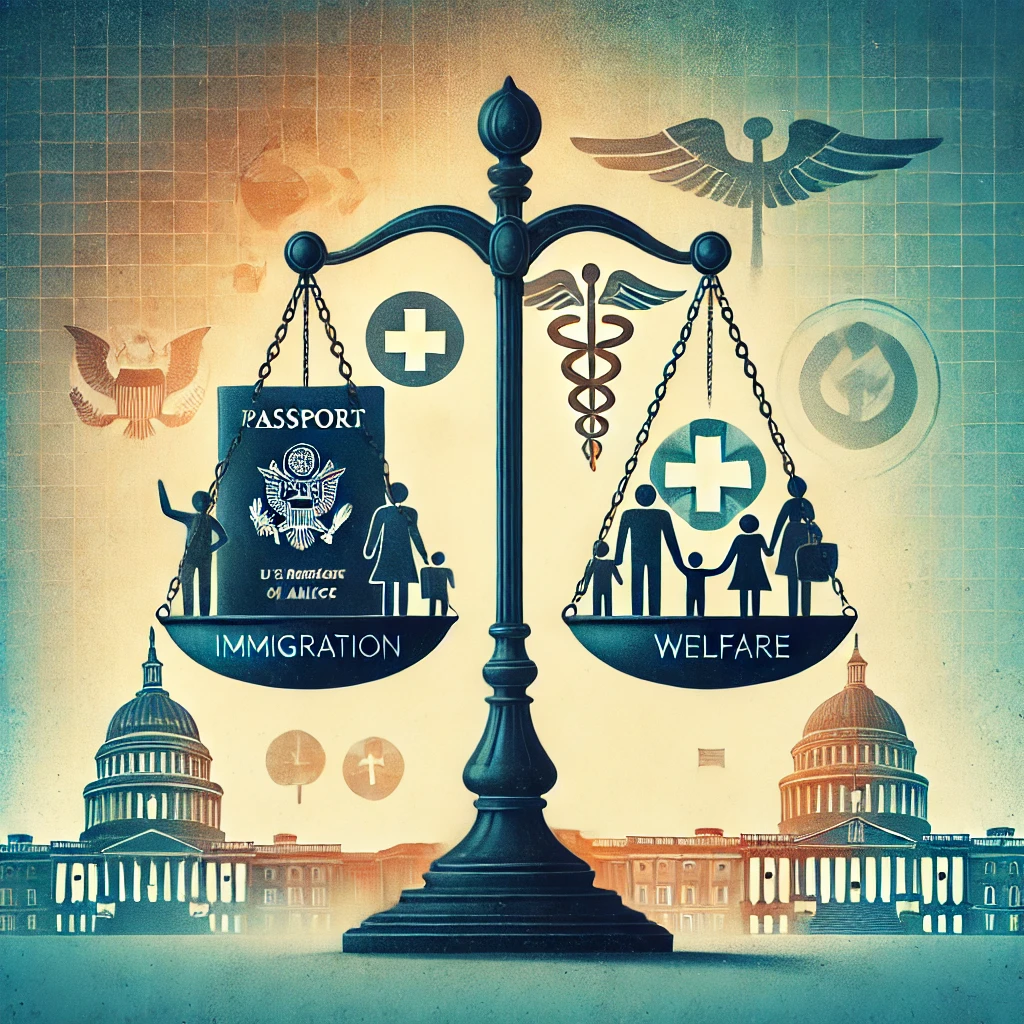
Constitutional Boundaries on Federal Welfare Benefits Eligibility for Aliens
Mathews v. Diaz, 426 U.S. 67 (1976).
Substance of the Case:
This case examines whether Congress can impose specific eligibility requirements—such as lawful permanent residency and a five-year continuous residence—for noncitizens to access federal welfare programs, specifically Medicare Part B. The Supreme Court addressed whether these requirements violated the Due Process Clause of the Fifth Amendment by discriminating among different categories of noncitizens.
Outcome of the Case:
The Supreme Court upheld Congress’s power to set these requirements, finding that such distinctions among noncitizens are constitutional. It concluded that Congress has broad discretion in regulating welfare benefits for aliens and that its decisions in this area merit significant deference, given their relationship to immigration policy and foreign relations.
Detailed Summary for Nonexperts
What Happened?
Medicare Part B is a federal health insurance program for individuals aged 65 and older. While U.S. citizens automatically qualify for enrollment, noncitizens must meet additional criteria: they must be lawful permanent residents and have lived continuously in the United States for five years.
Three individuals challenged these rules:
- Two were Cuban refugees who had been paroled into the U.S. but did not meet either the lawful permanent residency or five-year residence requirement.
- One, a lawful permanent resident, had not yet lived in the U.S. for five years.
They argued that the five-year continuous residence requirement was unconstitutional under the Due Process Clause of the Fifth Amendment, claiming it discriminated unfairly against noncitizens.
The Court’s Analysis
Congress’s Authority over Immigration and Benefits
- The Court emphasized that Congress has unique authority over immigration and naturalization, including the ability to make distinctions between citizens and noncitizens.
- Congress can also differentiate between different categories of noncitizens based on their ties to the U.S. (e.g., lawful permanent residents versus temporary visitors).
- These distinctions would be impermissible if applied to citizens but are valid for aliens due to Congress’s broad discretion.
Rational Basis Review for Welfare Distinctions
- The Court found that requiring lawful permanent residency and a five-year residence period is a reasonable way for Congress to ensure that federal benefits go to those with stronger ties to the U.S.
- These criteria help preserve the fiscal integrity of the program by limiting eligibility to individuals who have established significant connections to the country.
Flexibility for Political Branches
- The Court stressed that immigration and welfare decisions often involve foreign policy and national interests, areas best left to Congress and the President.
- Judicial review in these areas should be limited.
Conclusion:
The Court held that the Medicare Part B eligibility requirements did not violate the Due Process Clause of the Fifth Amendment. It reasoned that Congress has legitimate reasons to treat noncitizens differently based on their legal status and duration of residence in the U.S. The Court reversed the lower court’s decision, affirming Congress’s ability to impose reasonable conditions on federal benefits for noncitizens.
Why Does This Matter?
- This case highlights the distinction between how citizens and noncitizens are treated under U.S. law.
- It underscores Congress’s power to draw lines that exclude certain noncitizens from federal benefits based on their connection to the country.
- This principle remains central to debates about immigration and welfare policies today.
Let’s Get Started
Your legal challenges deserve personalized attention and innovative solutions. Contact Oware Justice Advocates PC today for a consultation and take the first step toward resolution and peace of mind.
355 South Teller Street, Suite 204,
Lakewood, CO 80226
(Visits to the office are strictly by appointment only)
303-514-6589

